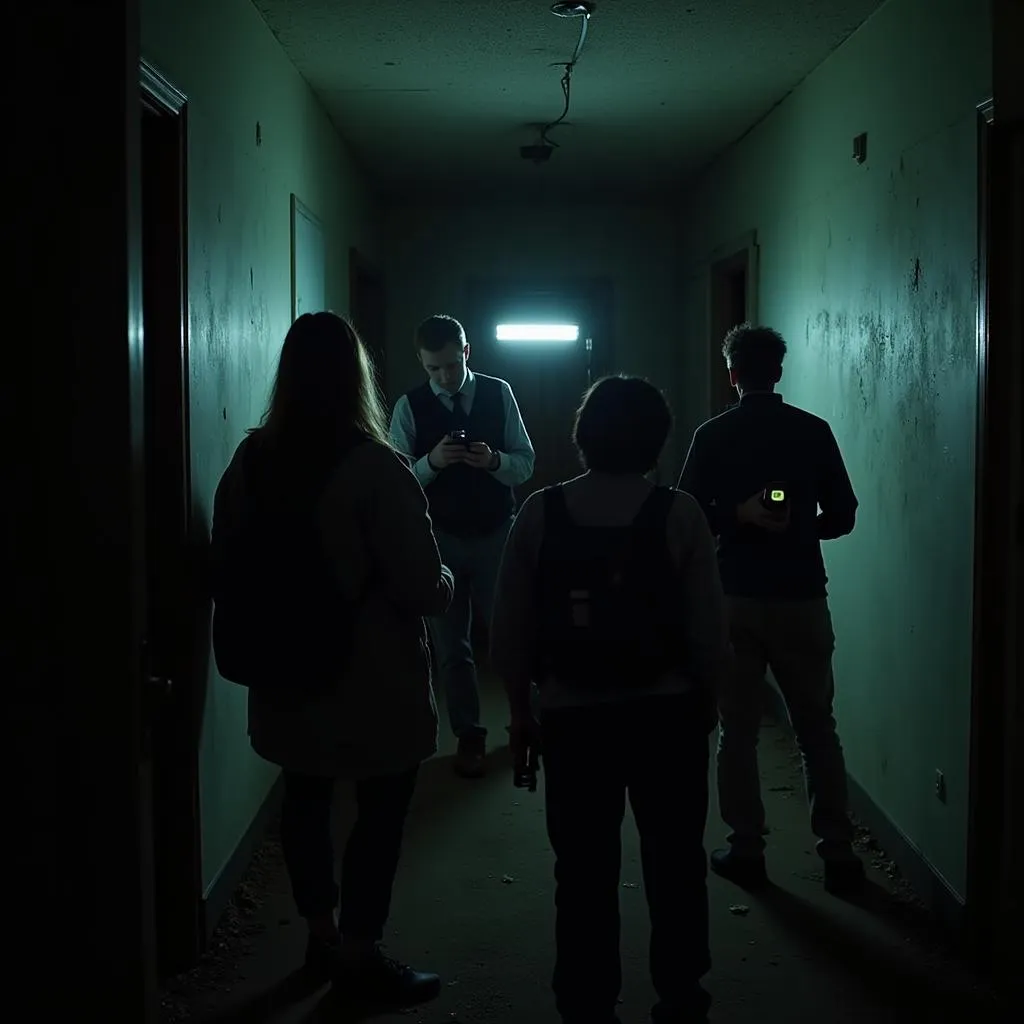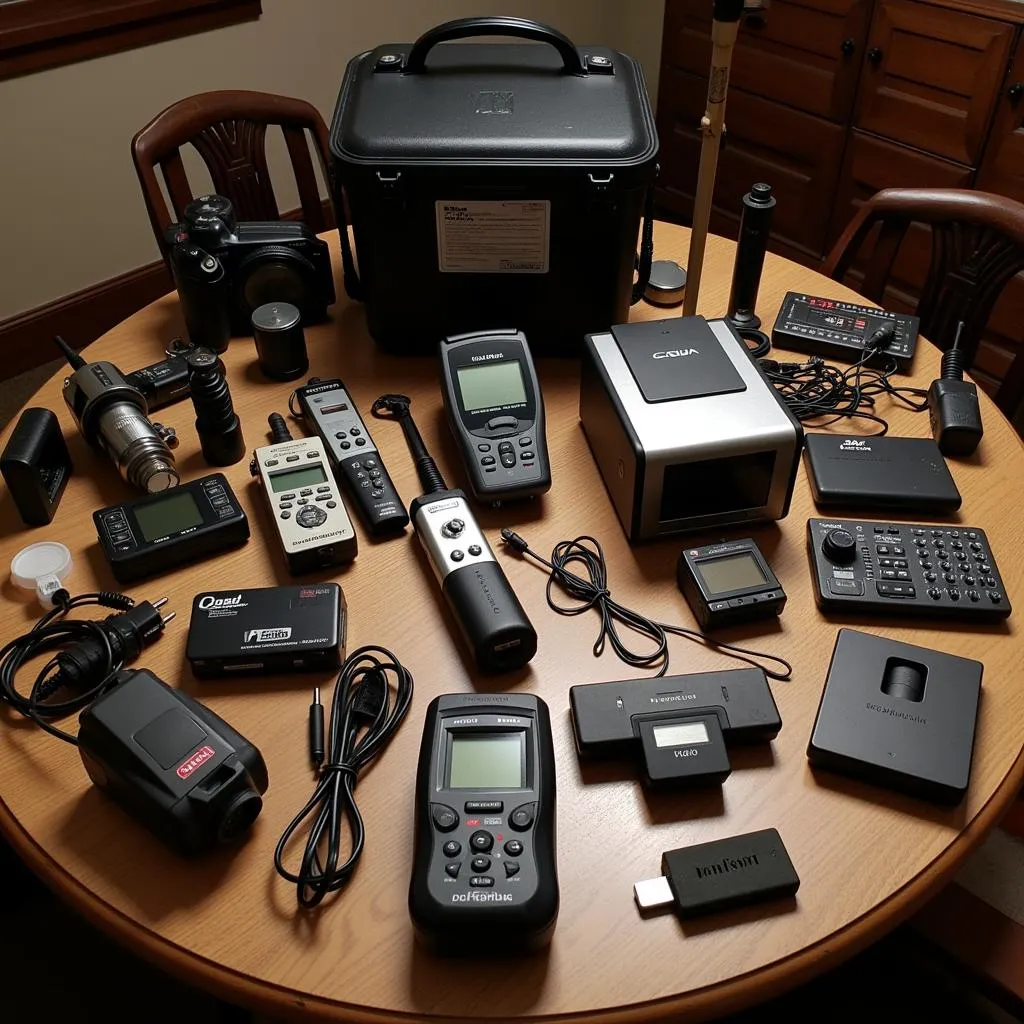Field research, the cornerstone of paranormal investigation, seeks to shed light on the unexplained by venturing directly into the heart of unusual phenomena. Unlike controlled laboratory settings, field research embraces the unpredictable nature of the supernatural, demanding adaptable data collection techniques that can capture evidence in its rawest form. So, what are these techniques that empower us to delve into the enigmatic realm of the paranormal?
Diverse Tools for Unraveling the Unexplained: Field Research Techniques
Field research in the paranormal relies on a multi-faceted approach, utilizing a combination of methodologies to gather compelling evidence. These techniques, often interwoven, provide a comprehensive understanding of the phenomena under investigation.
1. Observation: The Watchful Eye of Paranormal Inquiry
At its core, field research hinges on meticulous observation. This involves attentively monitoring the environment for any unusual occurrences, from subtle changes in temperature or electromagnetic fields to full-bodied apparitions or disembodied voices.
 Paranormal investigators observing an abandoned building
Paranormal investigators observing an abandoned building
Experienced investigators often rely on their senses – sight, sound, smell, taste, and touch – to detect anomalies. This sensory-rich approach allows for a holistic understanding of the environment and any potential paranormal manifestations.
2. Interviews: Unveiling Personal Experiences and Local Lore
Interviews serve as a crucial bridge between personal accounts and objective investigation. By engaging with witnesses and individuals claiming paranormal experiences, researchers can gather firsthand narratives, local folklore, and historical context surrounding a location or event.
These narratives, though subjective, provide valuable insights into the perceived nature of the phenomena. They often guide the investigation, leading researchers to potential hotspots of activity or uncovering previously undocumented aspects of the case.
 Interviewer talking to a witness
Interviewer talking to a witness
3. Technical Instrumentation: Bridging Science and the Supernatural
Modern paranormal research has embraced technology, employing a range of scientific instruments to capture objective data. These tools aim to detect and measure subtle energy fluctuations, electromagnetic anomalies, and other physical changes often associated with paranormal activity.
Some commonly used instruments include:
- EMF meters: Detect fluctuations in electromagnetic fields, which some believe indicate the presence of spirits.
- Thermal cameras: Capture temperature variations, potentially revealing cold spots or other thermal anomalies.
- Digital audio recorders: Record EVPs (Electronic Voice Phenomena), capturing sounds and voices inaudible to the human ear.
 Paranormal equipment laid out on a table
Paranormal equipment laid out on a table
The use of scientific instrumentation provides a layer of objectivity to paranormal investigations, grounding the findings in measurable data and reducing the reliance on subjective interpretation.
Ethical Considerations in Paranormal Field Research
While the pursuit of knowledge drives Paranormal Research, ethical considerations must always guide the investigation process. Respect for the living and the deceased, as well as the preservation of historical sites, are paramount.
- Obtaining informed consent: Prior to conducting interviews or investigations, researchers should obtain informed consent from all involved parties, ensuring they understand the nature and purpose of the research.
- Respecting privacy and confidentiality: Witnesses and their experiences should be treated with respect and sensitivity. Anonymity and confidentiality must be maintained unless explicitly waived.
- Preserving historical and cultural heritage: Investigations should be conducted with minimal disruption to historical sites, respecting cultural sensitivities and avoiding any damage or desecration.
Conclusion: The Ongoing Quest for Understanding
Field research in the paranormal, through its diverse techniques and ethical considerations, offers a compelling window into the unknown. While the debate surrounding the existence of the paranormal continues, these investigative methods provide a structured and insightful approach to exploring the unexplained, potentially unlocking the secrets that lie beyond the veil of our current understanding. If you’re interested in learning more about specific research methodologies, check out our article on conduct research definition. For a fascinating case study on the techniques used in a specific investigation, explore our article on clinical research of west florida.